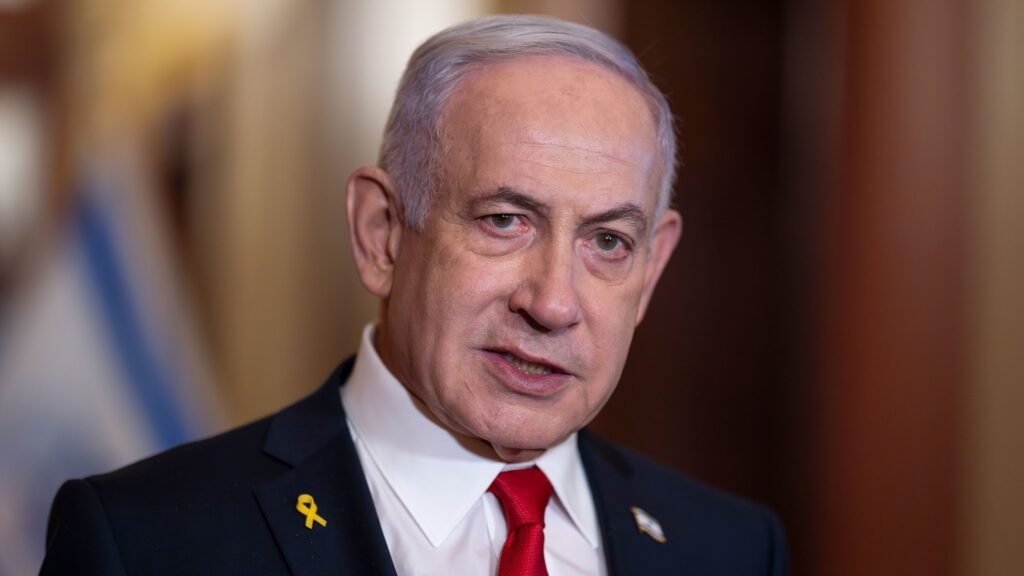In global politics, the concept of nuclear non-proliferation is often used not to make the world safer, but to preserve the power of certain countries. This creates an unfair system like “Nuclear Apartheid,” where some countries are allowed to have nuclear weapons while others are denied that right, even if they adhere to international rules. This unfairness is painfully obvious in the Middle East.
The US, claiming to protect global peace, applies double standards. Israel, which hasn’t signed the Nuclear Non-Proliferation Treaty (NPT) and is widely known to possess nuclear weapons, faces no international pressure. But Iran, which claims it wants nuclear energy for peaceful use, is punished with sanctions, isolation, and even the threat of war. And standing behind this unjust system is the US, arming, shielding, and justifying every move, even as the region slips further from peace.

Israel, the long-indulged ally of the US, has ruled the Middle East like a self-proclaimed monarch for over half a century. Backed by tacit US support and shielded from international accountability, it has secretly built a nuclear arsenal and carried out countless military operations with impunity. Its most brutal campaign, however, has been the merciless slaughter of Palestinians in Gaza.
Now, after turning Gaza into a mass grave, the Zionist regime has redirected its aggression towards Iran, desperate to block it from developing even peaceful nuclear capabilities, regardless of legality or intent. What gives certain states the authority to decide who can or cannot pursue nuclear technology? How can one nation maintain an undeclared arsenal with complete impunity, while another faces deadly missile strikes simply for attempting to acquire nuclear technology for peaceful purposes under international law?
In the early hours of June 13, 2025, Tel Aviv, quietly yet fully supported by Washington, executed “Operation Rising Lion,” a massive and coordinated pre-emptive strike against Tehran. Over 200 fighter jets and missiles were deployed in a surprise attack that targeted dozens of sites, including nuclear facilities, air defense systems, military compounds, and even private residences. Several high-ranking Iranian military commanders and prominent nuclear scientists were martyred.
For Tehran, it was nothing short of a Pearl Harbor moment—a sudden and devastating assault launched while the country was actively engaged in nuclear negotiations. Most disturbingly, those involved in the nuclear talks were among the targets. This raises a serious concern: Were they being pressured behind closed doors, and then eliminated when they refused to comply?

After witnessing this latest act of nuclear apartheid in the Gulf, it becomes undeniably clear that Iran is being set up to face the same fate as Iraq. We have seen this ruthless strategy before, where the US, under the banner of global security, accused Iraq of possessing weapons of mass destruction, only to later admit that those claims were unfounded. The result? A shattered nation, countless civilian lives lost, and decades of instability.
Now, the same plot is being replayed, this time in Iran. Similar strategies have already devastated Syria and Libya. Behind this aggression lies Israel’s deep fear of losing its nuclear monopoly. For Israel, the idea of any nuclear-capable neighbor is intolerable. Why is it that only allies of the West are allowed to develop nuclear power, while others face destruction for trying?
This fear-driven narrative has now become a political tool for Netanyahu, who repeatedly paints Iran as the ultimate threat to Israel’s very existence, claiming that launching attacks on Iran is necessary to prevent a so-called “nuclear holocaust” and to secure the region’s future. However, such claims ring hollow when measured against the brutal reality in Gaza. Israel has already dropped the equivalent of six nuclear bombs on a besieged strip of land where over two million people live, half of them children. Entire families have been wiped out. Homes, hospitals, and schools have been turned to rubble.

How can Netanyahu claim to prevent a hypothetical nuclear catastrophe when his government is already unleashing one?
The ongoing crisis in the Middle East reveals something far deeper than a dispute over weapons. The nuclear apartheid is not just a political term; it reflects a real global divide where some countries are permitted to hold devastating power and use it freely, while others are threatened and bombed for simply desiring a sense of security.
Just as apartheid in South Africa denied Black communities their dignity and right to equality, today’s nuclear apartheid treats Arab and Muslim lives as disposable in the eyes of global powers. This isn’t about Iran and Israel; it’s about a larger, unfair global system. In this system, the right to safety, the right to defend, and even the right to exist with dignity are granted selectively, based not on justice but on alliance and interests.



